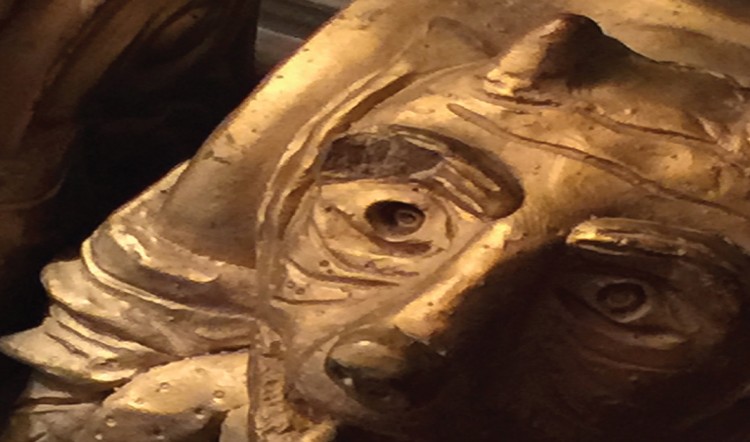Immersed in Oblivion
Even as Agents of Oblivion goes through the excruciating process of edits and continual tweaks, I took some time away from the writing of Echo of Dead Leaves to work on an Oblivion scenario for my home game. More likely than not, it will eventually make it’s way into the world, but not for a good, long time. What I’m working on is not set in the traditional, default modern world. For a lark, I’m dialing it back a bit over fifty years, smack dab in the Cold War. This was an eye-opening experience for me as I got to learn a LOT about the era. You know I’m a research junkie, right?
Hmmm. Maybe I should tell you why I find researching so fascinating? Okay. I’m moving forward with the faith at least one of you are interested in finding out. Once upon a time, I was dreadfully concerned with being derivative. Though I developed my writer’s voice early on, I had not reached the level of maturity and confidence to trust myself with not being influenced by reading external stuff, so I cut down on it for a bit. I’m certain part of it was just learning the craft of writing; imitation is the sincerest form of flattery aside, when I read Lovecraft, I wrote like Lovecraft, and so on with Hemingway and Fitzgerald and others (I probably should’ve stopped at Hemingway, but I didn’t). This went on for a period of years through most of high school. I wrote a lot of prose, poetry, and scribbled a lot of half-finished ideas in notebooks and the like and worked on campaign designs I’d never run. I wanted to be a writer since I was a kid, but always considered them magic. They listened to the Muse and wrote down the words; they were conduits to a higher, more mystical, plane of existence. They were oracles. When I went to college, I learned they were not. I felt then–and still do–that learning to much about something can take a bit of the magic away; it’s like when an illusionist shows you the secrets of a trick. I had a buddy of mine–Michael Mirth–a world-class magician show me (and some others) how he did one of his tricks. I told him he should always keep us guessing. Certainly, we knew there was a trick behind it, but we need something to believe in. Like with the magic trick, as I learned the secrets of writing and word-smithing I became disillusioned. I took to my lessons handily, but those years in college caused a cessation of my creative writing by and large, with the exception of a Warhammer Fantasy Roleplay campaign I ran for about four years.
I wanted to be original. Original is hard. Everything has pretty much been down in some form or fashion. Don’t think about this too hard or you might cry. Even now, literature and games are trying to find a new idea. The writers and designers standing behind the curtain (don’t peek) are trying to sort out what to do. It’s largely about execution. We have an advantage over our predecessors. By being alive, we can make ourselves relevant to the pulse of the world. People are smashing ideas together, reinventing the old, revamping the past. Eventually, I learned I would be better off reading. After college, my mind was creatively devoid. I had a solid writing style and the confidence to deliver it and I was no longer swayed by the words of others. My style would be my style and there you go. So, research began.
I discovered that without the constant threat of tests or random pop quizzes, I enjoyed the words so much more. I could let my mind wander. I could let atoms smash into each other and explode, go off at tangents, or die a quiet death (sure, it’s my mind, so why not nuclear duds?) The research is fundamental for me regardless of what I work on. With RunePunk, I was researching the rules and reading my way through vast swathes of traditional fantasy and science fiction even as I defined my vision of steampunk fantasy. This was back before you could throw a rock and hit steampunk fantasy. The same goes with Iron Dynasty and Agents of Oblivion and all our other stuff. I’ve read a large number of books on Charleston in preparation for Echo of Dead Leaves. It’s important to not transcribe. You have to let the ideas soak into your mind and grow. You have to come back and write it in your own words. It’s not a test, though. You can (and should) double-check your facts (if you haven’t noted them before getting to the writing) and proceed with the project. Get in. Get out. Make the research for you. But, more importantly, make it your own. Jot down notes. Note connections.
I used the mission generator in Agents of Oblivion to work on the Cold War Chronicles and it was purposeful. I learned where a few things needed some clarification in the text. More importantly, I crafted together a solid idea not only for the main adventure, but for the entire work. I’m curious what you think about something like the Cold War Chronicles becoming an actual “thing”. Let me know. If you want more details, let me know that too.
Until next time, I bid you, dear reader, adieu!

1 Note on “Immersed in Oblivion”
Chaosmeister
That sounds like an interesting era to play in. No mobilephones, no internet. The dangerous russian at the doorstep. James Bond at his heigth. Makes life as a DM a lot easier too. I really dig this setup. Setting adventures in that era is generally not done enough. I feel my *iwanttoplaythis* sense tingling.